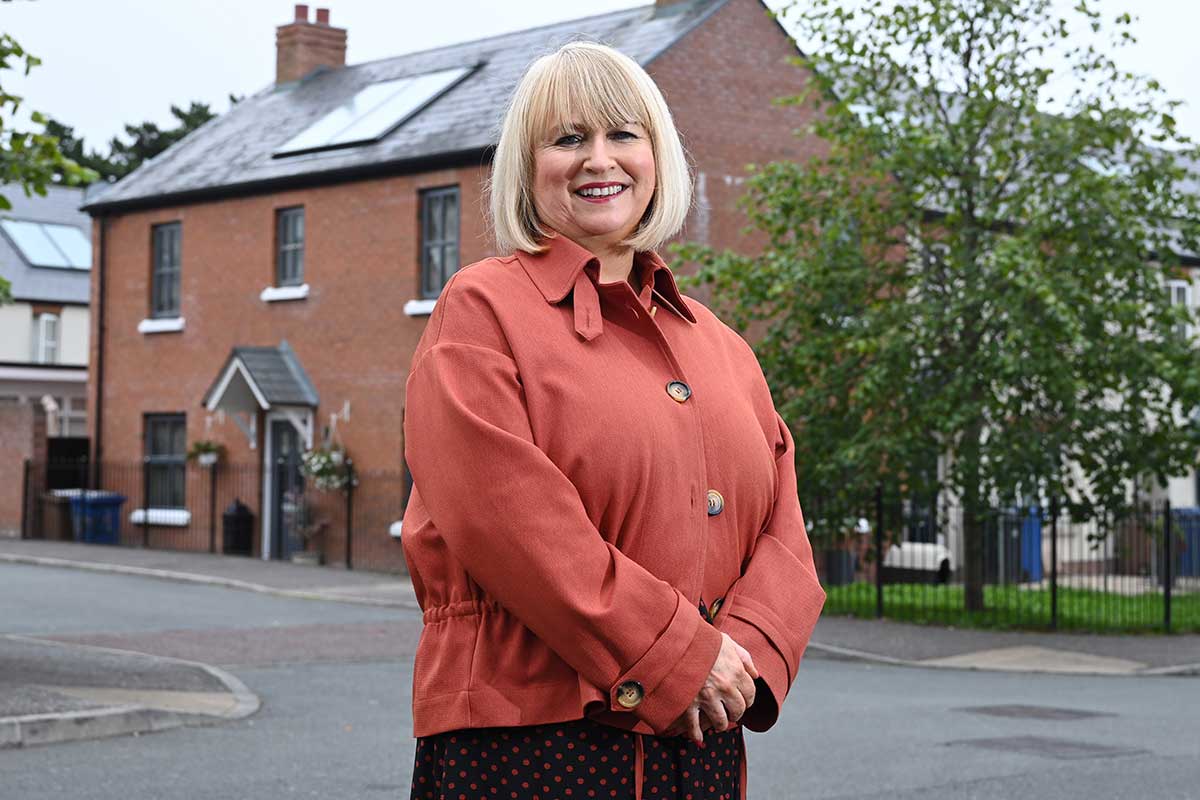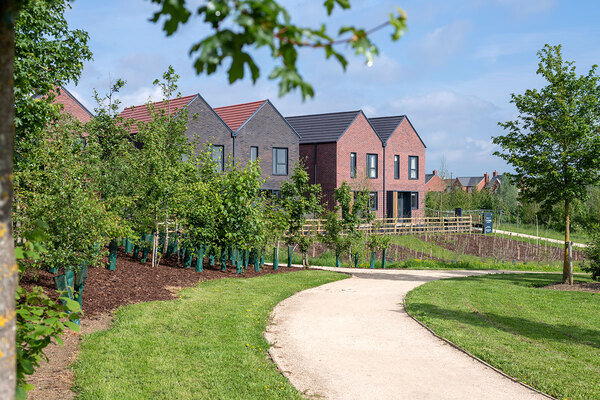You are viewing 1 of your 1 free articles
Northern Ireland landlord ‘not curbing’ development plans despite sector challenges
A housing association in Northern Ireland has no plans to curb its development pipeline, despite the challenges facing the sector.
Speaking to Inside Housing, Clanmil’s chief executive Carol McTaggart said that although the landlord would like to have started more homes, it still “remains optimistic” and has “not curbed its ambition” to reach its target of building 1,400 homes by 2026.
The target, set out in its 2021-26 five-year strategy, was bolstered by a £100m private placement in 2022 from three investors.
The package enabled it to access housing development grants from the Department for Communities, combining public and private funding to create a total investment in new homes of some £200m.
The funding is going towards investing in existing as well as new homes.
On the pipeline, Ms McTaggart said: “I would have liked us to have started more but despite the current economic climate and the many challenges, including access to land and materials and skills shortages in Northern Ireland, we still remain optimistic that we will achieve what we set out to deliver by the end of the period.
“By the start of 2024-25 we hope to have around 600 homes under construction.”
On top of pushing ahead with its development plans, Clanmil has pledged that all its new homes will be built to the highest Energy Performance Certificate (EPC) rating.
Clanmil currently builds its homes to an EPC rating of B, but the landlord’s board recently agreed that all its new homes will be built to an EPC rating of A with effect from 1 April.
“That’s us putting additional money in to be able to achieve that standard. But we’re very conscious that that’s the right thing to do, because if we didn’t, it’s just storing up a further retrofit programme for us,” Ms McTaggart said.
As it stands, 85.8% of Clanmil’s 5,892 homes are already at EPC C or higher, while 99.9% already meet the Decent Homes Standard.
Ms McTaggart said the “big challenge” is how to improve the energy efficiency of older stock.
“We’re the only part of the UK that doesn’t have a ringfenced decarbonisation fund. Our colleagues in the UK have been able to avail of a decarbonisation fund to help them expedite their retrofit programme,” she said.
She added that there are also issues around the capacity of the Northern Ireland electricity grid, as well as whether the country’s supply chain is sufficient to come up with an alternative to gas heating.
Ms McTaggart, who also serves as chair of CIH Northern Ireland, highlighted several other challenges that social landlords and tenants are facing in the country.
She said: “Whilst we’ve seen CPI come down in October, we’re still in a cost of living crisis. Our customers are still facing difficulties in just getting by. The organisation is still facing significant cost of living pressures in terms of the cost of doing business and the cost of our materials and labour issues.
“We still have quite a lot of challenges around the cost of living crisis, and what that might mean in terms of being able to provide homes that are safe and welcoming, services to support our customers to live well and thrive, some of the outreach work that we may do in terms of advancing community development.”
Ms McTaggart said the lack of government for the past two years – although very recently up and running again – has also had an impact, particularly in terms of funding and a lack of strategic plans for decarbonisation and housing in general.
She added: “That’s very compounded because our waiting lists are the highest they’ve been in 10 years, with over 45,000 people on the waiting list for a social home.
“Therefore the challenge for us is are we building enough new homes to be able to try to to make an impact on that waiting list.”
Sector bodies, including the Northern Ireland Federation of Housing Associations (NIFHA) and the Chartered Institute of Housing (CIH), most recently highlighted these challenges in a letter to the first and deputy first ministers.
They reiterated their call on the executive to make housing a standalone outcome in the Programme for Government (PfG).
The CIH also wrote to the Department for Communities (DfC) warning of the “devastating” potential impact that budget cuts will have.
In the absence of an executive last year, Northern Ireland secretary Chris Heaton-Harris allocated funding to the DfC, leaving it with £111.2m (15.5%) and a shortfall of £59m (27.3%) in capital required for 2023-24.
Ms McTaggart said: “We’re very saddened because of budget cuts this year, partly contributing to the fact that there’s no government. The sector normally delivers somewhere between 1,900 and 2,000 new homes a year. You could even argue: is that enough to make an impact on that waiting list? And yet, our budget this year means that we are only being funded to deliver 1,400 homes this year.
“At a time that our waiting lists are at the highest they’ve been in 10 years, we’ve taken away the ability to deliver 600 new homes for the people of Northern Ireland.”
Sign up for our Northern Ireland bulletin
Already have an account? Click here to manage your newsletters












